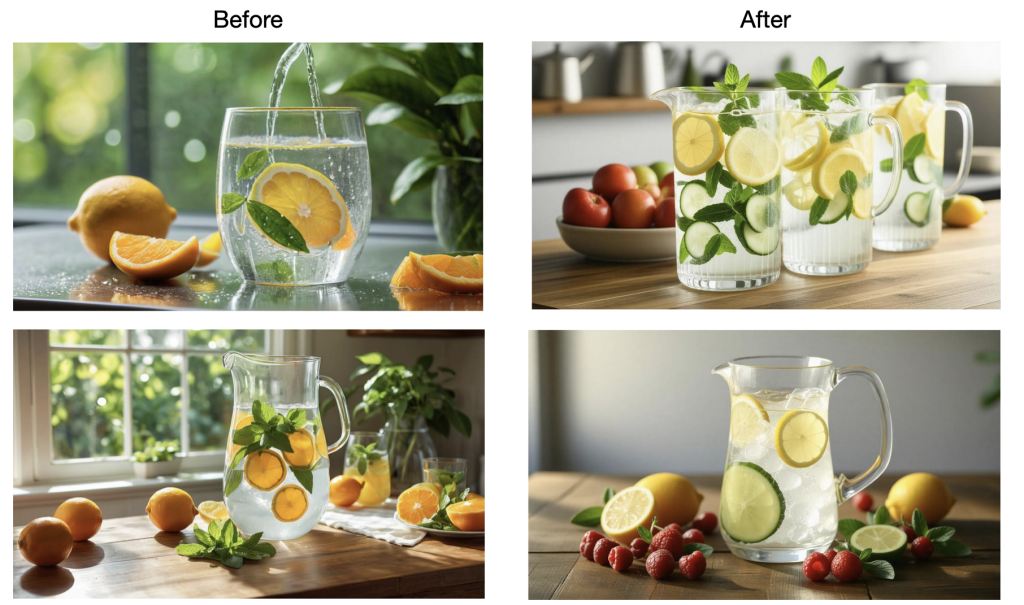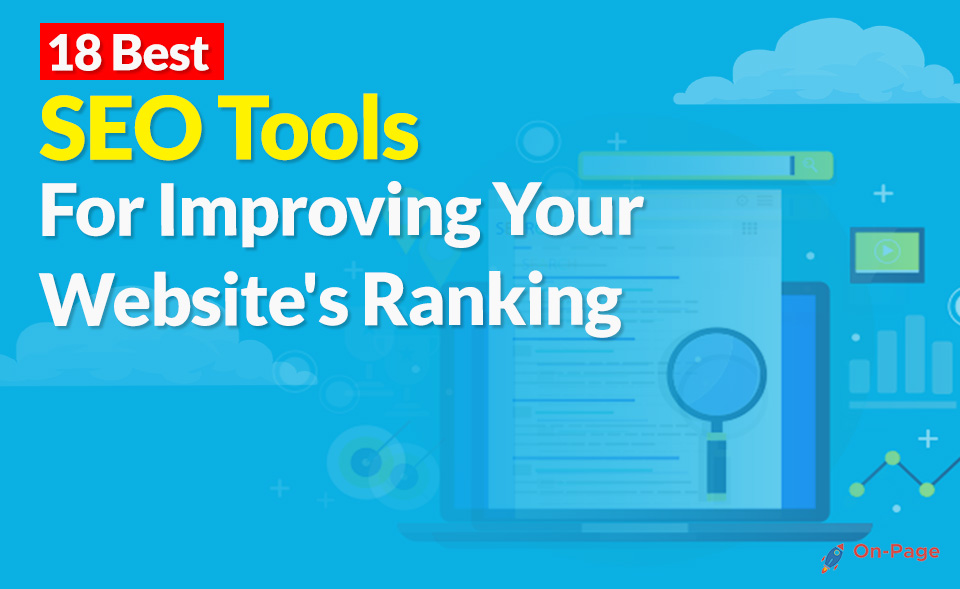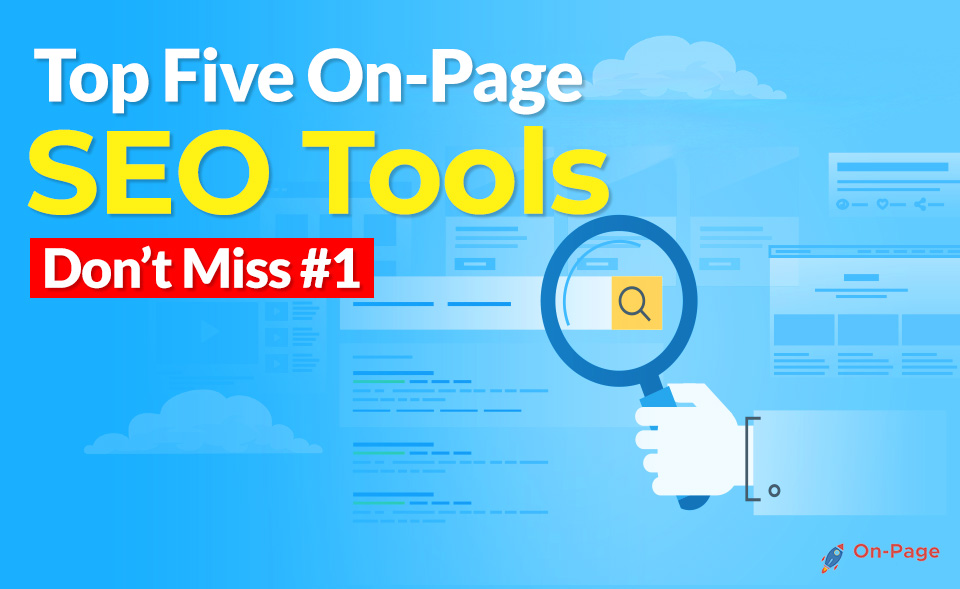Comparing The Best SEO Tools: Frase Vs Surfer
There is only one option moving forward
If you’re just a little savvy with SEO SaaS products, you’re probably wondering why anyone is comparing Frase and Surfer. The comparison seems more appropriate between Frase and Topic or Surfer and PageOptimizer Pro. Frase and Surfer aren’t exactly in the same category of tools based on their range of features, but that’s the whole point of this article – which one is the most comprehensive fit for your content and optimization needs?
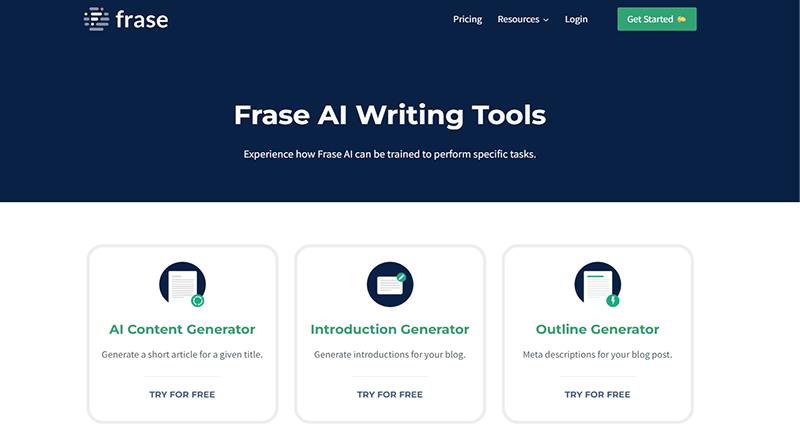
Major difference?
Most SaaS products don’t start out the way they end up. Frase was basically designed as an AI-powered content creation and outlining tool for writing high-quality content. Eventually, the team added some SEO features to create optimized content on the fly. Surfer SEO was built as an on-page SEO optimization tool, famous for its SERP analyzer, a feature that provides the user with a full sneak peek into the competitors’ strategies. Content creation features were added over time.
In a nutshell, one tool is a content creator with SEO integration with the other is a full-fledged SEO tool with content writing integration.
They are both excellent tools with sophisticated features and great reviews from users worldwide, but which one is the best for you? Let’s compare and find out.
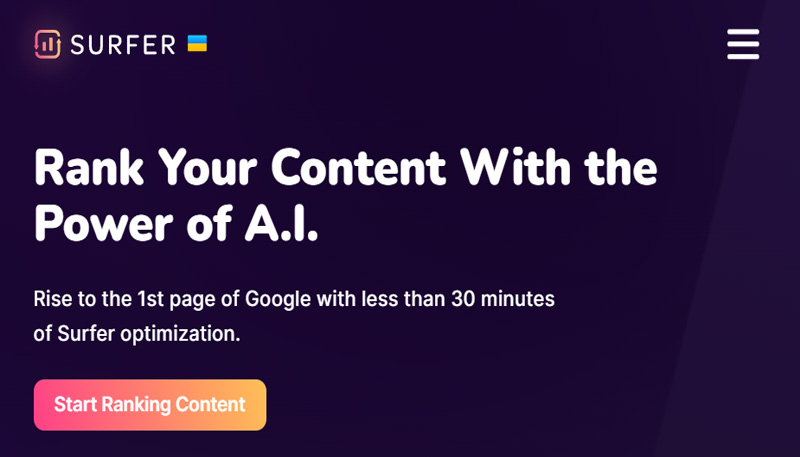
Content Creation
Frase.io:
This is pretty much what Frase was built to do. It uses artificial intelligence and natural language processing to help the user create excellent articles and pieces. It offers keyword recommendations, builds optimized content briefs, and answers common questions asked by Google’s users using its “Answer Engine” feature. It also supplies statistics and research numbers to fortify article credibility.
On the left-hand side of the Frase interface is the “Document” tool for creating articles from scratch. It offers four options for the type of work you intend to do: content creation, content curation, content brief, and content optimization. The document tool is super-useful because it provides a preliminary article summary and on the right-hand side, you get an in-depth analysis of what the top-ranking pages on Google’s SERPs are doing. This helps you build your own strategy using ideas that actually work.
Frase.io has a really robust content editor that’s great for creating content from scratch or optimizing already-written articles by simply pasting it into the interface. The AI-powered algorithm offers suggestions and optimizes your content as you write. The right-hand side analysis shows 20 results of competitor metrics such as average word account, top headers, links, and precise image counts. You can also paste the competitor’s outline, frequently-asked questions, Quora topics, and Reddit headlines in the Frase editor.
The Questions tab is another awesome feature that provides users with a full list of the most-asked questions appearing on the SERPs. This helps them create content that’s more relevant to user search intent. It also increases your page’s chances of getting splashed on featured snippets.
Frase.io is one of the first Answer Engine Optimization platforms because it has an algorithm known as an answer engine, a feature that attempts to accurately answer visitor questions for optimization insights. This is one of its most popular features, the “Frase Answer Engine”.
Surfer SEO:
Surfer SEO is one of the few on-page SEO platforms that offer powerful content editors as a top feature. The editor integrates with the SERP analyzer to help you write optimized articles on the go. It includes NLP and powerful Google-crawling algorithms, and while it’s not as equipped for content research as Frase, it does a good job of helping you generate relevant articles.
Clicking “content editor” on the top menu bar of the application takes you straight to the built-in editor. You’d have to input a primary search term and run an analysis. On the right-hand side, Surfer supplies an in-depth review of the search term based on what you’ve written so far – and recommendations on further additions.
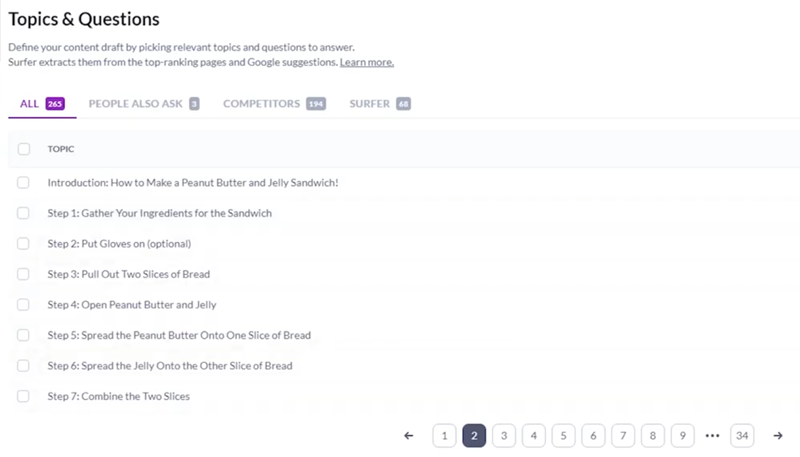
The displayed metrics include:
-Word count
-Headings
-Images
-Total number of paragraphs
-Words in bold
-Necessary terms to include
-Secondary keywords
-“Prominent” and “Other” terms
Expanding the review section shows further information such as:
-Competitor analysis
-Topics and questions to answer
-A slot for additional notes
On the left-hand side, you have an editing area with all the features of a full-fledged editor for writing in rich text. Start writing your text while watching the metrics change, update and suggest on the right-hand side. You can also paste in content written on other editors to be optimized by Surfer. Just follow the guidelines and optimize accordingly.
Surfer SEO also has a Google Chrome extension that lets you work with Surfer directly on Google docs – optimizing on your preferred editor with no hassles.
Verdict: Frase takes the crown of the better content creator.
Content Optimization
Frase.io:
Frase has a simple optimization approach that provides a benchmark for article comparison. With this tool, you can simply optimize your article on the fly while writing or you can upload or paste finished pieces into the content area. It’s super-useful for optimizing quickly and accurately. Just observe the metrics on the right-hand side of the interface and adjust accordingly.
To get started, you’d have to supply a primary term or keyword and upload an optional URL. Frase’s AI will pull up the top 20 articles according to Google’s ranking factors and compare your article with each one. This way, you know what works and what to avoid.
Some of the metrics include:
-Long-tail keywords. It also shows the recommended volume and overall -density in your article.
-Best topic options
-Optimizing the title
-Clusters
-Average word count
-Blacklist
-Google rank scores of other top articles on the SERPs
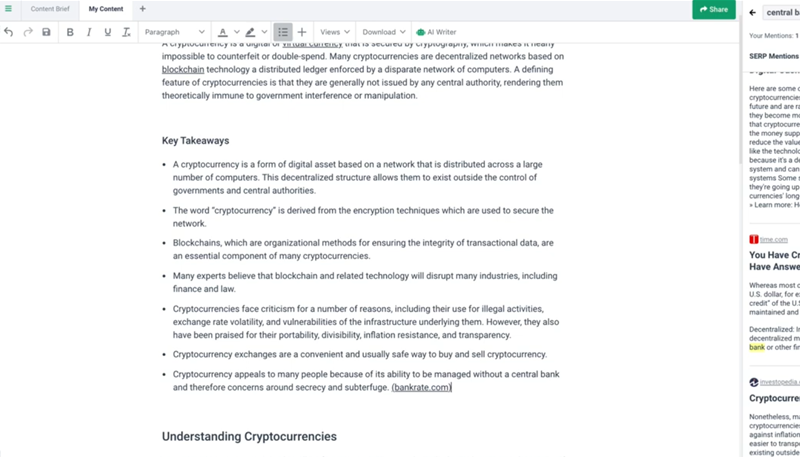
Frase also has a keyword research tool that’s pretty basic when compared to the top on-page tools. It takes in a primary term and throws back a list of recommended words, but they are not always of high relevance to the main term.
Surfer SEO:
Surfer is one of the top recommended tools for in-depth optimization in the SEO industry. It’s basically on every top ten list for optimization tools that throw a serious avalanche of endless details about your article and page. Most times, you’d barely be able to use or understand all the metrics, but if you know what you’re doing, it can all be extremely useful.
Surfer’s most popular and most important feature is the SERP analyzer, a feature that compares your primary term to the highest ranking articles in the niche. It pulls out all the relevant data and reveals strategies that can help you optimize your article to rank high over time. It points out common patterns from the foremost SERPs, based on 50 pages and over 500 ranking factors.
The SERP analyzer tool doesn’t just break down keywords into bits of data. It analyzes the full-page content, supplying metrics such as highest-ranking content types, content depths, top choice media formats, and most-clicked topics. It performs competitor analysis by allowing you to select your top competitors from a list of 50.
Basically, it breaks down all the articles on the first SERP and throws back so much information that can be pretty overwhelming. However, if you’re patient enough, you can work your way through as many metrics as possible to charge up your article.
Some of these include:
-Average word count (can be graphed against time)
-Page speeds
-Heading densities
-Keyword density
-Keyword frequency
-Backlink usage
-Internal links (link count)
-Common words
-Hidden content
-Alt texts
-Character counts for meta tags and title tags
-Article structures
-Estimated traffic
There’s so much more information and it’s important to filter out the most useful bits. Surfer has another awesome feature, the audit tool that takes stock of problems in the overall website such as missing common backlinks, true density, and essential words missing from content structures.
Surfer’s keyword research tool is also really robust for overall optimization. The recommendations are far more accurate than those from Frase. Just click on “keyword research” on the main interface and it takes in a primary term and supplies a list of recommended keywords. It works as most other keyword research tools, but Surfer recently added an exciting new metric known as the SERP similarity. This feature shows how the pages ranking for the primary keyword are also ranking for suggested words on a scale. It’s really useful for long-term optimization and higher page relevance.
Verdict: Surfer is a much better choice for in-depth content optimization.
Ease of navigation
Frase.io:
Frase has a simple interface that’s super-easy to get around. Generally, the tool is self-explanatory and you shouldn’t require any extra special training to understand the reports it provides on keywords. It’s a pretty sweet tool for the most part with minimal clustering of unnecessary metrics.
Surfer SEO:
Surfer’s main interface appears simple at the first glance, but when you dive deeper into the platform, you might need to watch a tutorial or two to get the hang of it. Navigating the app itself is simple enough, but the jargon gets quite confusing at some point – especially with the truckloads of endless information pouring out from the SERP analyzer.
Verdict: Frase is the easier tool to navigate – clean, straightforward, and hassle-free.
On-page.ai
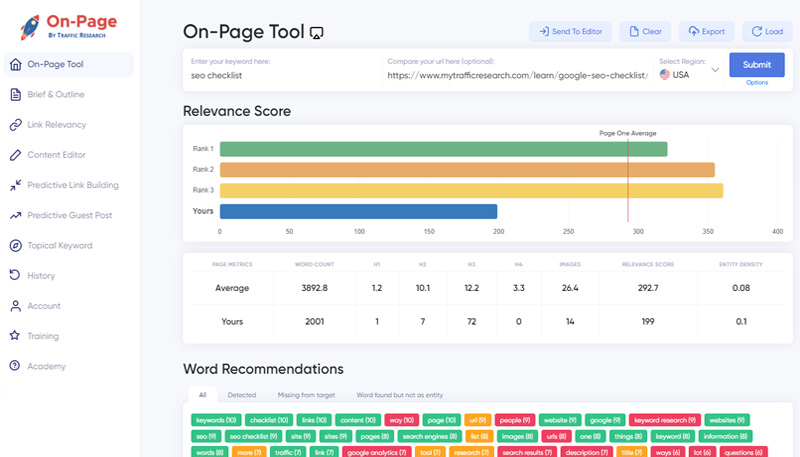
Figuring out the SEO strategies of your competitors is one thing, but knowing exactly what Google rewards for each optimization factor is a completely different ball game.
On-Page.ai is a powerful on-page SEO tool that can reverse-engineer Google’s algorithms to understand what the search engines reward the most. It’s a sophisticated on-page SEO tool, fully equipped for content and brief creation. It’s powered by artificial intelligence and incorporates natural language processing in EVERY single scan it performs. The whole point is to filter out irrelevant metrics and unnecessary information, focusing only on what really matters.
This tool prioritizes user search intent, content relevance, and content depth – Google’s top three factors for deciding which pages take the top ranks on the SERPs. Users have recorded as much as a 1030% exponential increase in traffic using On-page.ai, stats that can be seen nowhere else.
Content creation: On-page includes a robust AI-embedded Brief and Outline tool for creating optimized content from scratch or optimizing finished articles within the live content editor. All that time spent sifting through Google’s SERPs for content and research can be compressed into a few minutes of using On-page’s Briefing tool. On the left-hand side of the briefing tool, On-page offers a Questions feature, similar to Frase and even more accurate, with statistics for proof-based writing, most-clicked topic ideas, headings, and article structure ideas. You can outline your article in the blank space on the right side. On-page’s Brief and Outline tool slashes article and topic research time by at least 85 percent.
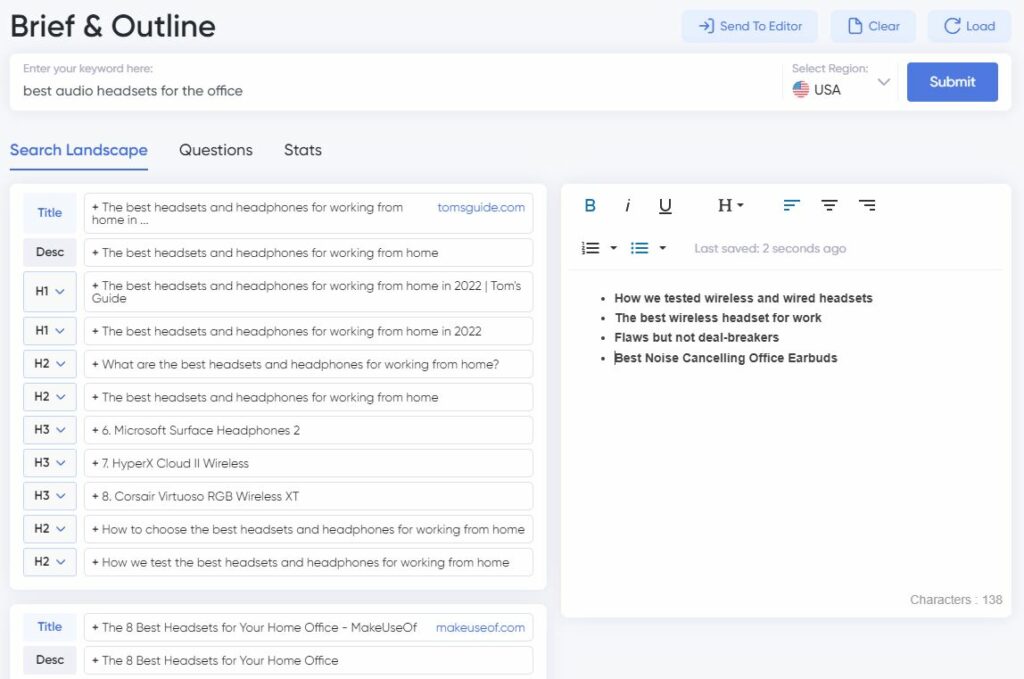
Content optimization: The “On-page Tool” tab on the left-hand side of the interface is everything you need to swim to the top of those SERPs with consistent work. The bits of information provided during keyword research are all the metrics you need to create or optimize your article for both the users (relevance and intent) and search engines. With NLP available on all scans, simply enter a primary term, an optional URL, an optional location, and click submit. The tool then supplies an in-depth report with some of the following metrics:
-Relevance score relative to the top ranking pages
-Word counts
-Headings
-Recommended keywords separated by color
-Highly related keywords
-Keyword variations
-Entity density
-Image number
-Page classification
Category-specific words. This metric offers a super-charging advantage where you can optimize at the category level and not merely page level. It’s amazing.
On-page’s optimization process offers more relevant, accurate, and immediately useful information than most other tools. It doesn’t overload you with a truckload of confusing metrics but all the essential bits that actually matter in the long run.
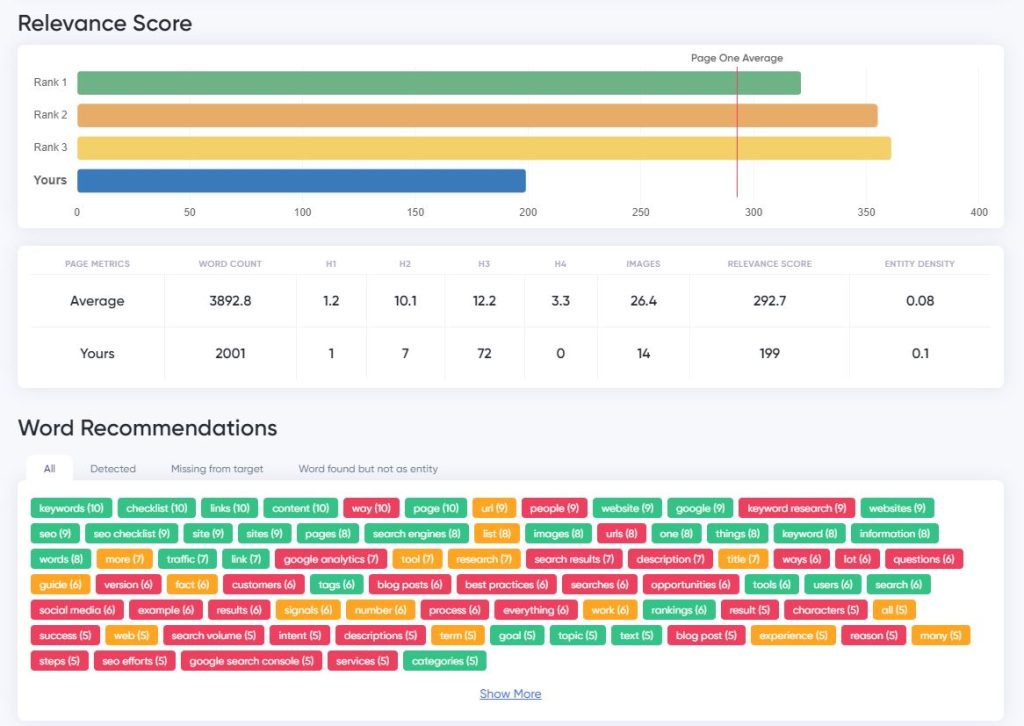
Ease-of-navigation: It’s just really comforting working with a tool that doesn’t make SEO look like rocket science. On-page.ai has a super-friendly and easy-to-navigate user interface for such a sophisticated tool. You require very little technical knowledge of SEO to enjoy this product. It provides a straightforward process with real results and consistency.

